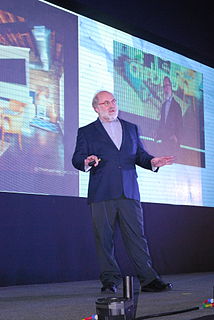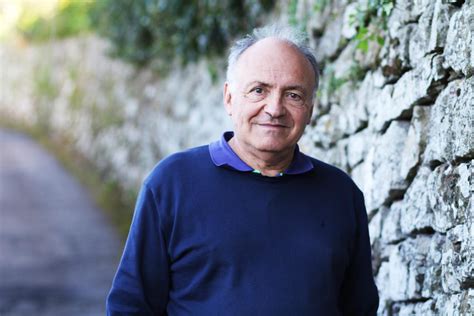A Quote by Saul Bellow
Great pressure is brought to bear to make us undervalue ourselves. On the other hand, civilization teaches that each of us is an inestimable prize. There are, then, these two preparations: one for life and the other for death. Therefore we value and are ashamed to value ourselves.
Related Quotes
Realize that illness and other temporal setbacks often come to us from the hand of God our Lord, and are sent to help us know ourselves better, to free ourselves of the love of created things, and to reflect on the brevity of this life and, thus, to prepare ourselves for the life which is without end.
Just as love blinds us to imperfections in others, it magnifies those we see in ourselves. But if this is true, then the opposite must also be the case. We can take comfort in the fact that our faults will be invisible to those who love us. The success or failure of any relationship depends not just on how we feel about each other, but on how we make each other feel about ourselves.
After each failure, ask forgiveness, pick yourself up, and try again. Very often what God first helps us toward is not the virtue itself but just this power of always trying again. For however important chastity (or courage, or truthfulness, or any other virtue) may be, this process trains us in habits of the soul which are more important still. It cures our illusions about ourselves and teaches us to depend on God. We learn, on the one hand, that we cannot trust ourselves even in our best moments, and, on the other, that we need not despair even in our worst, for our failures are forgiven.
We all have a world of things inside ourselves and each one of us has his own private world. How can we understand each other if the words I use have the sense and the value that I expect them to have, but whoever is listening to me inevitably thinks that those same words have a different sense and value, because of the private world he has inside himself, too.
Culture gives us each a sense that life has meaning and that we have value - by offering us assurances of immortality. Either literally, through the heavens, the soul's afterlives or reincarnation, or by the prospect that some vestige of ourselves will persist over time - from having kids, amassing great fortunes or producing great works of art or science. Yet no culturally constructed symbolic belief system is ever powerful enough to completely eradicate the anxiety that is engendered by the awareness of death.
Solitude is used to teach us how to live with other people. Rage is used to show us the infinite value of peace. Boredom is used to underline the importance of adventure & spontaneity. Silence is used to teach us to use words responsibly. Tiredness is used so that we can understand the value of waking up. Illness is used to underline the blessing of good health. Fire is used to teach us about water. Earth is used so that we can understand the value of air. Death is used to show us the importance of life.
Something similar happens on the other side of the equation: Giving kindness does us as much good as receiving it. . . . The true benefit of kindness is being kind. Perhaps more than any other factor, kindness gives meaning and value to our life, raises us above our troubles and our battles, and makes us feel good about ourselves.
I don't understand executives that pit women against each other, the fact that they brought in 'Body of Proof,' Dana Delaney is a friend of mine, and the two of us were just rolling our eyes, it's like, of course, you finally have two great female leads and you're going to put us on against each other.
To forgive another from the heart is an act of liberation. We set that person free from the negative bonds that exist between us. As long as we do not forgive we pull them with us, or worse, as a heavy load. The great temptation is to cling in anger to our enemies & then define ourselves as being offended & wounded by them. Forgiveness, therefore, liberates not only the other but also ourselves. It is the way to the freedom of the children of God.





































